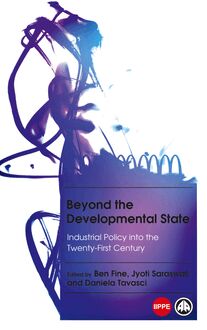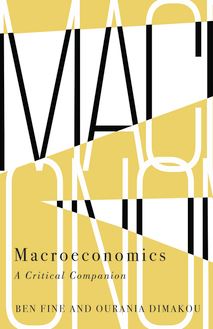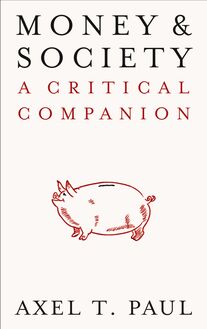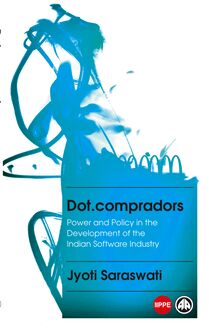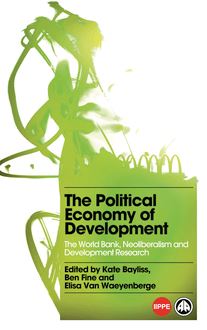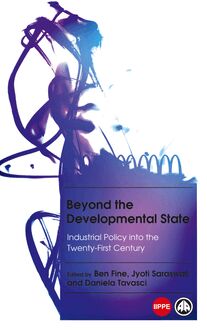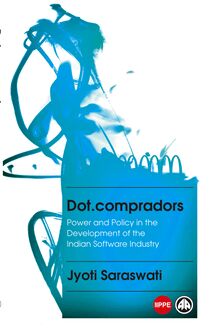-
 Univers
Univers
-
 Ebooks
Ebooks
-
 Livres audio
Livres audio
-
 Presse
Presse
-
 Podcasts
Podcasts
-
 BD
BD
-
 Documents
Documents
-
- Cours
- Révisions
- Ressources pédagogiques
- Sciences de l’éducation
- Manuels scolaires
- Langues
- Travaux de classe
- Annales de BEP
- Etudes supérieures
- Maternelle et primaire
- Fiches de lecture
- Orientation scolaire
- Méthodologie
- Corrigés de devoir
- Annales d’examens et concours
- Annales du bac
- Annales du brevet
- Rapports de stage
La lecture à portée de main
Vous pourrez modifier la taille du texte de cet ouvrage
Découvre YouScribe en t'inscrivant gratuitement
Je m'inscrisDécouvre YouScribe en t'inscrivant gratuitement
Je m'inscrisEn savoir plus
Vous pourrez modifier la taille du texte de cet ouvrage
En savoir plus

Description
The research, practice and scholarship of development are always set against the backdrop of the World Bank, whose formidable presence shapes both development practice and thinking. This book brings together academics that specialise in different subject areas of development and reviews their findings in the context of the World Bank as knowledge bank, policy-maker and financial institution. The volume offers a compelling contribution to our understanding of development studies and of development itself.
The Political Economy of Development is an invaluable critical resource for students, policy-makers and activists in development studies.
Foreword
Part I: Preliminaries and Principles
1. The World Bank, Neoliberalism and Development Research, by Elisa Van Waeyenberge, Ben Fine and Kate Bayliss
2. A Knowledge Bank? by Elisa Van Waeyenberge and Ben Fine
Part II: Research in Practice
3. Understanding Aid at the Bank, by Elisa Van Waeyenberge
4. A Cup Half Full: The World Bank’s Assessment of Water Privatisation, by Kate Bayliss
5. Social Capital and Health, by Ben Fine
6. World Bank Research on HIV/AIDS: Praise Where It’s Due?, by Deborah Johnston
7. Agriculture in the World Bank: Blighted Harvest Persists, by Carlos Oya
8. A Policy Wrapped in 'Analysis' - The World Bank’s Case for Foreign Banks, by Paulo L dos Santos
9. Hard Science or Waffly Crap? Evidence-Based Policy versus Policy Based Evidence in the Field of Violent Conflict, by Christopher Cramer and Jonathan Goodhand
10. The Washington Consensus and the China Anomaly, by Dic Lo
Part III: Continuity or Change?
11. Whither World Bank Research?, by Ben Fine, Elisa Van Waeyenberge and Kate Bayliss
References
Index
Sujets
Informations
| Publié par | Pluto Press |
| Date de parution | 06 mai 2011 |
| Nombre de lectures | 2 |
| EAN13 | 9781783713868 |
| Langue | English |
Informations légales : prix de location à la page 0,2000€. Cette information est donnée uniquement à titre indicatif conformément à la législation en vigueur.
Extrait
The Political Economy of Development
Political Economy and Development
Published in association with the International Initiative for Promoting
Political Economy (IIPPE)
Edited by
Ben Fine (SOAS, University of London)
Dimitris Milonakis (University of Crete)
Political economy and the theory of economic and social development have long been fellow travellers, sharing an interdisciplinary and multidimensional character. Over the last 50 years, mainstream economics has become totally formalistic, attaching itself to increasingly narrow methods and techniques at the expense of other approaches. Despite this narrowness, neoclassical economics has expanded its domain of application to other social sciences, but has shown itself incapable of addressing social phenomena and coming to terms with current developments in the world economy.
With world financial crises no longer a distant memory, and neoliberalism and postmodernism in retreat, prospects for political economy have strengthened. It allows constructive liaison between the dismal and other social sciences and rich potential in charting and explaining combined and uneven development.
The objective of this series is to support the revival and renewal of political economy, both in itself and in dialogue with other social sciences. Drawing on rich traditions, we invite contributions that constructively engage with heterodox economics, critically assess mainstream economics, address contemporary developments, and offer alternative policy prescriptions.
Also available:
Theories of Social Capital: Researchers Behaving Badly
Ben Fine
THE POLITICAL ECONOMY OF DEVELOPMENT
The World Bank, Neoliberalism and Development Research
Edited by Kate Bayliss, Ben Fine and Elisa Van Waeyenberge
First published 2011 by Pluto Press
345 Archway Road, London N6 5AA
www.plutobooks.com
Distributed in the United States of America exclusively by
Palgrave Macmillan, a division of St. Martin’s Press LLC,
175 Fifth Avenue, New York, NY 10010
Copyright © Kate Bayliss, Ben Fine and Elisa Van Waeyenberge 2011
The right of the individual contributors to be identified as the authors of this work has been asserted by them in accordance with the Copyright, Designs and Patents Act 1988.
British Library Cataloguing in Publication Data
A catalogue record for this book is available from the British Library
ISBN 978 0 7453 3104 1 Hardback
ISBN 978 0 7453 3103 4 Paperback
ISBN 978 1 8496 4593 5 PDF eBook
ISBN 978 1 7837 1387 5 Kindle eBook
ISBN 978 1 7837 1386 8 EPUB eBook
Library of Congress Cataloging in Publication Data applied for
This book is printed on paper suitable for recycling and made from fully managed and sustained forest sources. Logging, pulping and manufacturing processes are expected to conform to the environmental standards of the country of origin.
10 9 8 7 6 5 4 3 2 1
Designed and produced for Pluto Press by Chase Publishing Services Ltd Typeset from disk by Stanford DTP Services, Northampton, England Simultaneously printed digitally by CPI Antony Rowe, Chippenham, UK and Edwards Bros in the United States of America
Contents
Acronyms and Abbreviations
Preface
PART I PRELIMINARIES AND PRINCIPLES
1
The World Bank, Neo-Liberalism and Development Research
Elisa Van Waeyenberge, Ben Fine and Kate Bayliss
2
A Knowledge Bank?
Elisa Van Waeyenberge and Ben Fine
PART II RESEARCH IN PRACTICE
3
Understanding Aid at the Bank
Elisa Van Waeyenberge
4
A Cup Half Full: The World Bank’s Assessment of Water Privatisation
Kate Bayliss
5
Social Capital and Health
Ben Fine
6
World Bank Research on HIV/AIDS: Praise Where It’s Due?
Deborah Johnston
7
Agriculture in the World Bank: Blighted Harvest Persists
Carlos Oya
8
A Policy Wrapped in ‘Analysis’: The World Bank’s Case for Foreign Banks
Paulo L. dos Santos
9
Hard Science or Waffly Crap? Evidence-Based Policy versus Policy-Based Evidence in the Field of Violent Conflict
Christopher Cramer and Jonathan Goodhand
10
The Washington Consensus and the China Anomaly
Dic Lo
PART III CONTINUITY OR CHANGE?
11
Whither World Bank Research?
Ben Fine, Elisa Van Waeyenberge and Kate Bayliss
References
Index
Acronyms and Abbreviations
AAA
Analytical and Advisory Activities
AICD
Africa Infrastructure Country Diagnostic
AIDS
Acquired Immune Deficiency Syndrome
ANDS
Afghanistan National Development Strategy
ARD
Agriculture and Rural Development
AREU
Afghan Research and Evaluation Unit
ART
Anti-Retroviral Therapies
BalAEF
Baltic American Enterprise Fund
BBI
Bringing Back In
BIS
Bank for International Settlements
CBO
Community-Based Organisation
CDF
Comprehensive Development Framework
CEE
Central and Eastern European
CIS
Commonwealth of Independent States
CN
Counter Narcotics
CND
Counter Narcotics Directorate
CPAU
Cooperation for Peace and Unity
CPIA
Country Policy and Institutional Assessment
DEC
Development Economics Department of the World Bank
DECRG
Development Economics Research Group
DfID
Department for International Development
DIA
Defense Intelligence Agency
ECB
European Central Bank
ESW
Economic and Sector Work
FAO
Food and Agriculture Organisation
FCR
Full Cost Recovery
GDF
Global Development Finance
GDP
Gross Domestic Product
GFRP
Global Food Crisis Response Program
GNI
Gross National Income
HIV
Human Immunodeficiency Virus
I-ANDS
Interim Afghanistan National Development Strategy
IBNET
International Benchmarking Network
IBRD
International Bank for Reconstruction and Development
ICF
Infrastructure Crisis Facility
IDA
International Development Association
IEG
Independent Evaluation Group
IFAD
International Fund for Agricultural Development
IFC
International Finance Corporation
IFI
International Financial Institution
IFPRI
International Food Policy Research Institute
ILO
International Labour Organisation
IMF
International Monetary Fund
INFRA
Infrastructure Recovery and Assets
IPG
International Public Good
LDC
Less Developed Country
LIDC
London International Development Centre
MDG
Millennium Development Goal
MIGA
Multilateral Investment Guarantee Agency
MIT
Massachusetts Institute of Technology
MNC
Multinational Company
NCNP
Neoclassical Neo-Populist
NGO
Non-Governmental Organisation
NIC
Newly Industrialising Country
NIE
New Institutional Economics
NORAD
Norwegian Agency for Development Cooperation
ODA
Official Development Assistance
OECD
Organisation for Economic Cooperation and Development
PBA
Performance Based Aid
PPIAF
Public Private Infrastructure Advisory Facility
PPP
Public–Private Partnership
PRR
Policy Research Report
PRSP
Poverty Reduction Strategy Papers
PRWP
Policy Research Working Paper
PSD
Private Sector Development
PSP
Private Sector Participation
PWC
Post-Washington Consensus
SCP
Structure Conduct and Performance
SDH
Social Determinants of Health
SME
Small and Medium Enterprises
SOE
State-Owned Enterprise
SSA
Sub-Saharan Africa
SSR
Security Sector Reform
STI
Sexually Transmitted Infections
TVE
Township and Village Enterprises
UNDP
United Nations Development Programme
WBG
World Bank Group
WDR
World Development Report
WSS
Water Supply and Sanitation
WTO
World Trade Organisation
Preface
Late in 2006, the World Bank issued a report (Deaton et al. 2006) of the findings of an independent evaluation of research activities carried out by the Bank between 1998 and 2005 by a group of eminent economists chaired by Angus Deaton. However, it was with mixed feelings that in early 2007 a small group of us consulted the evaluation report. As longstanding critics of the Bank, such a review was most welcome to us. But we had doubts over the extent to which a review commissioned by the Bank itself would be sufficiently independent and critical and whether it would, in any case, have any impact. On balance, we were more than pleasantly surprised with the strength of criticism within the Deaton Report, which is a positive reflection upon the intellectual integrity of those who were involved in its production. In our view, it was imperative that the report’s findings regarding the deficiencies of World Bank research should be widely broadcast, especially the Bank’s blatant use and abuse of research for unjustified advocacy purposes. Such criticisms were not new, even from within the Bank itself, but the claim could no longer be made that the critics were dissidents of some sort or were without establishment credentials and status. The report seemed to offer the platform from which to strengthen calls for reform of the Bank’s research, advocacy and, ultimately, policy.
Nevertheless, we found the deliberations of the Deaton Report to be limited in scope and depth – not least in the questions asked, the ways in which answers were constructed and the substance of those answers. This was largely by virtue of the deep commitment to mainstream economics of those involved in producing the report. For this reason, we organised a seminar series through the London International Development Centre (LIDC) with the purpose of bringing wider attention to the Deaton Report itself. The aim was to offer the Deaton evaluation as a critical point of departure for a more extensive assessment of the role of the World Bank in research on development and to explore alternative approaches.
The papers from that seminar series form the basis for this book. But the Deaton Report, whilst serving as the initial prompt and remaining as a critical reference point throughout the contributions, has occupied a considerably lesser prominence than originally anticipated. This is for two reasons. First, to our surprise and great disappointment, the Deaton Report has scarcely been ac
-
 Univers
Univers
-
 Ebooks
Ebooks
-
 Livres audio
Livres audio
-
 Presse
Presse
-
 Podcasts
Podcasts
-
 BD
BD
-
 Documents
Documents
-
Jeunesse
-
Littérature
-
Ressources professionnelles
-
Santé et bien-être
-
Savoirs
-
Education
-
Loisirs et hobbies
-
Art, musique et cinéma
-
Actualité et débat de société
-
Jeunesse
-
Littérature
-
Ressources professionnelles
-
Santé et bien-être
-
Savoirs
-
Education
-
Loisirs et hobbies
-
Art, musique et cinéma
-
Actualité et débat de société
-
Actualités
-
Lifestyle
-
Presse jeunesse
-
Presse professionnelle
-
Pratique
-
Presse sportive
-
Presse internationale
-
Culture & Médias
-
Action et Aventures
-
Science-fiction et Fantasy
-
Société
-
Jeunesse
-
Littérature
-
Ressources professionnelles
-
Santé et bien-être
-
Savoirs
-
Education
-
Loisirs et hobbies
-
Art, musique et cinéma
-
Actualité et débat de société
- Cours
- Révisions
- Ressources pédagogiques
- Sciences de l’éducation
- Manuels scolaires
- Langues
- Travaux de classe
- Annales de BEP
- Etudes supérieures
- Maternelle et primaire
- Fiches de lecture
- Orientation scolaire
- Méthodologie
- Corrigés de devoir
- Annales d’examens et concours
- Annales du bac
- Annales du brevet
- Rapports de stage
